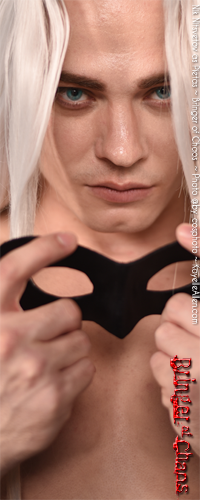Editing is an art, and some have a better knack than others.
However, editing is also a science. There are rules in grammar regarding form
and content. That means every author can take steps to strengthen the
ability.
Here are a dozen things I keep in mind when I'm editing my
final draft. After all, I'm writing for a very picky immortal king. I have to be careful. I mean, look at this guy. Would you want to make him look bad? Ok, here we go.
12 Editing Suggestions
- Edit for passive construction. Omit words like am, was, were, be, being, been.
- Use an active verb rather than a conditional one. Example:
He would do anything his lord asked, without quarrel or quibbling.
He did anything his lord asked, without quarrel or quibbling. - Substitute concrete terms for abstract ones. Thought vs. mused, guess vs. hypothesis.
- Omit vague and abstract terms such as would, could, some, anything, about, only, better, less, etc.
- Look for long phrases and shorten them.
- Watch out for sentences that begin with conjunctions. (as, because, but, and).
- Count the number of times you use the words has, had, and have. Change the tenses of verbs around to eliminate their need.
- Make a list of your personal no-no words. These are words you use as crutch words to move you from one point to another as you write, but edit later. Go over your list before you submit it to your editor, critique group, or beta readers. What kinds of words? I've provided a link to a pdf I created for my critique group that contains 128. http://kayelleallen.com/media/WordstoWatchWhenEditing.pdf Feel free to pass it along to friends.
- Ask yourself what is the worst thing that can happen to a character, and then focus on words that fit that description.
- Grab a good tool. Try the Emotion Thesaurus: A Writer's Guide To Character Expression by Angela Ackerman and Becca Puglisi. This book provides phrases, terms, and other descriptors you can use to convey character emotions. No author should be without this tool. When you grab your own copy, start making a list of phrases you use as well. Each of us has something good to offer. Make the most of your own ability and record these phrases in a workbook, notepad, or document on your computer for later reference.
- Any rule can ignored. If you are writing a complex, well-spoken character, you may need his/her speech to contain larger words, or a timid character to use a more passive vocabulary.
- Edit with words that fit what your readers understand. It doesn't hurt to have a character who uses words that are difficult or complex, as long as there is context so readers can figure out what's going on. It can help strengthen the complexity of the character to do so. In my Bringer of Chaos series, Pietas is immortal, far beyond "well educated" and a brilliant scientist. Six, his constant companion, is far less knowledgeable. Here's a snippet to illustrate:

"Six, look! These tracks are from
ungulates." Pietas knelt and ran his fingers along the tracks. "These
are popular with terraformers. They put them on every colonized world. Artiodactyla, to be precise. Bovidae. I suspect a derivative
of aepyceros melampus."
"You know, Pi, when you say
things like that, you think you're explaining, but you're really not."
"Animals with split hooves.
Even-toed. Lightweight impalas. Antelopes."
"What, you couldn't say antelopes?"
Pietas got up, dusting off his pants. "I just did."
Edit with the end in mind
What is the mood of the story? Explore ways to make your
writing match it. Use good tools, and take notes about how other authors handle
scenes and situations. Find a passage of a book that you enjoy and rewrite it
in your own words, trying to make it stronger. See if you can improve it. Then,
take a passage of one of your previously published books, and try the same
thing.
Editing is a science, but it's also an art, and art takes
practice. Never stop trying.

Great post and very helpful. Nope I wouldn’t want to make that guy look bad lol( not that you could lol)
ReplyDeleteLOL - Thanks, Cathy. I agree. Hard to make him look anything but gorgeous ;)
Delete